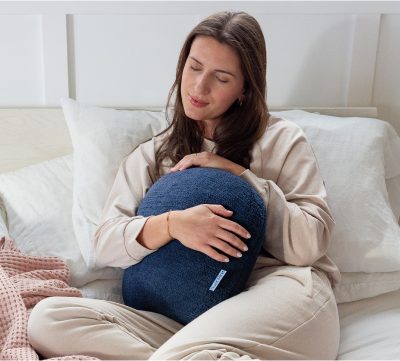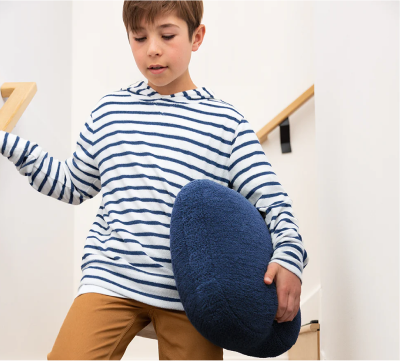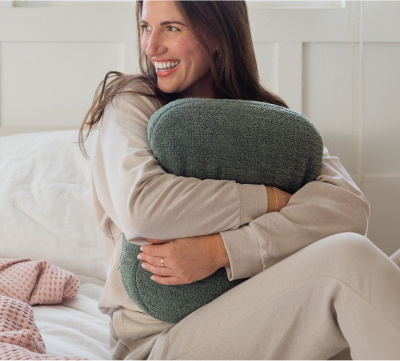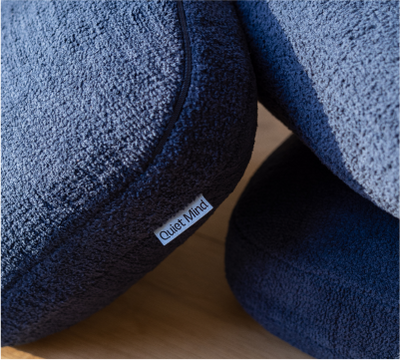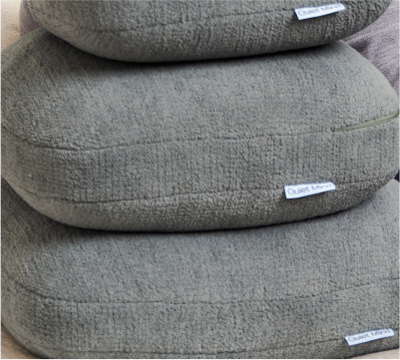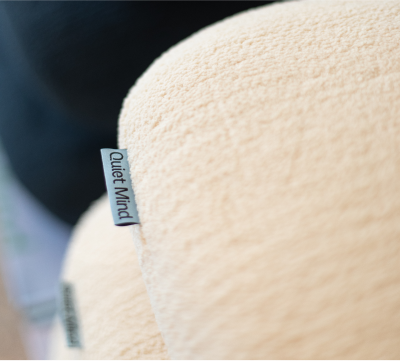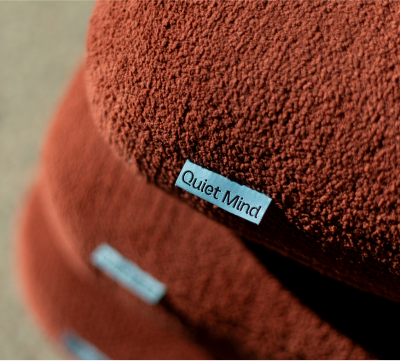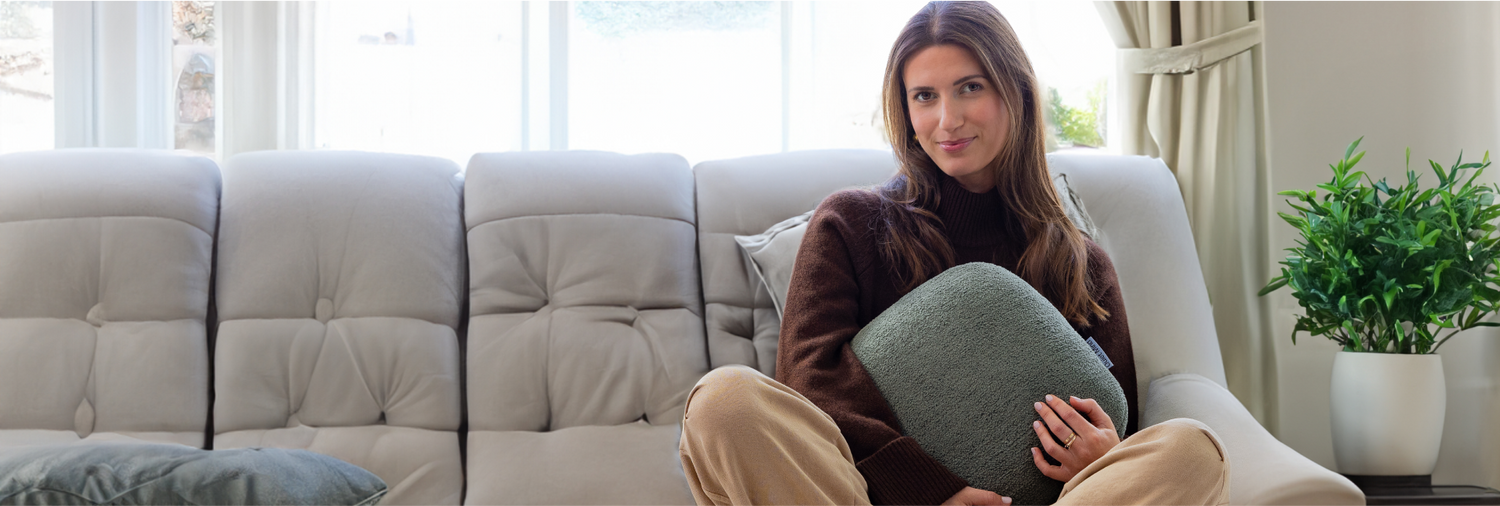ADHD shapes how individuals experience the world—often with intense energy, creativity, and sensitivity. While it can bring daily hurdles like distraction, restlessness, or emotional ups and downs, it also opens the door to unique strengths. For those with ADHD, happiness isn’t about fitting into a mold, but about discovering what works for them and building a life around it.
This article looks at how ADHD impacts emotional well-being, the factors that influence happiness in both adults and children with ADHD, and practical ways to foster fulfillment, balance, and self-acceptance.
Understanding Happiness in People with ADHD
The relationship between ADHD and happiness is complex. Research examining symptoms and happiness among adults shows that ADHD is associated with greater emotional variability, impulsivity, and inattention—symptoms that can disrupt routines and self-perception.
However, these same individuals can also experience deep fulfillment through supportive environments and personalized ADHD treatment.
An international team of researchers found that adults in the general population who reported the highest ADHD symptom scores were twice as likely to report feeling unhappy, while 44 percent of those scoring lowest on ADHD symptoms reported being either satisfied or very happy.
Even so, the results of this study reveal an important truth: happiness is not out of reach for people with ADHD. Understanding the association between ADHD symptoms and self-evaluations of happiness among adults helps create a more compassionate path forward.
|
Aspect |
Impact on Happiness |
Potential Strategies |
|
Symptom Management |
Improved well-being through symptom regulation |
Medication, therapy, lifestyle shifts |
|
Social Relationships |
Supportive bonds boost resilience and joy |
Building nurturing connections |
|
Emotional Regulation |
Greater control leads to a steadier sense of self |
Mindfulness, emotional coaching |
With awareness and tailored strategies, individuals with ADHD can shape lives rich with meaning and joy.
Key Factors That Make Individuals with ADHD Feel Happy
Supportive Relationships and Emotional Safety
Support from family, friends, or professionals plays a foundational role in fostering happiness for adults with ADHD and children with ADHD alike. Relationships that are emotionally safe help reduce stress and boost confidence.
|
Support Type |
Description |
Benefits |
|
Family & Friends |
Non-judgmental emotional support |
Security, belonging, and encouragement |
|
Therapeutic Support |
ADHD-focused therapy or coaching |
Regulation tools, personalized coping |
|
Peer Communities |
Shared experience, group accountability |
Normalization of challenges, emotional relief |
Pursuing Passion Projects and Interests
Many people with ADHD experience hyperfocus, a state of deep engagement often sparked by passion. Rather than trying to fix what makes them different, individuals with ADHD thrive when they align daily life with personal interests.
-
Engage in creative or hands-on activities
-
Choose projects that spark intrinsic motivation
-
Use hyperfocus as a tool for productivity
Exploring passion areas also highlights the benefits of ADHD like divergent thinking, high energy, and intense curiosity.
How Daily Routines Can Boost Happiness in ADHD
Daily routines offer balance and predictability, which helps regulate emotions and reduce overwhelm for people navigating the challenges of ADHD.
Importance of Structure and Flexibility
Good routines find a balance between structure and flexibility, making space for changing energy levels and emotional needs.
|
Routine Element |
Structured Strategy |
Flexible Option |
|
Time Management |
Using planners or time-blocking |
Allowing task shuffling based on focus level |
|
Task Completion |
Clear task breakdowns |
Adjusted timing based on energy |
|
Daily Flow |
Morning & evening rituals |
Built-in breaks for spontaneity |
Time Management Tools That Help ADHD Happiness
Tools such as ADHD-specific planners, time-tracking apps with gentle reminders, with other natural ADHD management techniques like the Pomodoro method can transform time management from a constant source of stress into a reliable support system. These tools help break overwhelming tasks into manageable chunks, reduce procrastination, and create a sense of accomplishment through small, consistent wins.
When combined with other natural ADHD management strategies—like mindfulness, movement breaks, and structured routines—they contribute significantly to improved focus, emotional regulation, and daily productivity.
Emotional Well-Being: What Improves Mood for People with ADHD
Emotional resilience is essential for navigating the tides of ADHD. By building habits that support emotional well-being, happiness becomes a more natural, lasting state.
Managing Emotional Dysregulation
Emotional highs and lows are common in ADHD, but with mindful approaches, they can be smoothed and softened.
|
Strategy |
Description |
Associated Benefits |
|
Cognitive Behavioral Therapy (CBT) |
Reshapes negative thinking patterns |
Strengthened emotional regulation |
|
Mood Journaling |
Identifies emotional triggers and patterns |
Greater self-awareness and clarity |
|
Mindfulness Practices |
Cultivates present-moment awareness |
Reduced reactivity, enhanced calm |
Tracking emotional rhythms helps individuals anticipate challenges and build better coping strategies.
Mindfulness and Relaxation Techniques
Mindfulness invites individuals with ADHD to slow down, tune in, and respond rather than react. Gentle practices such as breathwork, guided meditation, and body scans can help calm the mind and promote equilibrium and resilience.
Activities That Make People with ADHD Truly Happy
Engaging the mind, body, and spirit through stimulating activities builds happiness in a natural, nourishing way.
Creative Hobbies and Hands-On Projects
Expressive activities allow for emotional release and creative satisfaction:
- Painting, drawing, or crafting
- Writing, poetry, or photography
- Carpentry, woodworking, or jewelry-making
|
Creative Hobby |
Benefits for ADHD |
|
Painting/Drawing |
Enhances self-expression and fine motor skills |
|
Crafting/Jewelry Making |
Builds focus, patience, and creativity |
|
Woodworking/Carpentry |
Strengthens problem-solving and hand coordination |
Physical Activities and Exercise
Movement is medicine for the ADHD mind. Regular exercise not only supports physical health but also sharpens focus and lifts mood.
Recommended activities include:
- Running, swimming, or cycling
- Yoga or tai chi
- Team sports like basketball or soccer
Outdoor Adventures and Nature Exposure
Nature offers a powerful, restorative antidote to the overstimulation of modern life. Time outdoors reduces stress, increases attention span, and cultivates peace.
- Hiking, backpacking, or rock climbing
- Gardening or nature-based crafts
- Kayaking, canoeing, or exploring trails
|
Outdoor Activity |
Benefits for ADHD |
|
Hiking/Backpacking |
Enhances focus, reduces stress |
|
Gardening/Landscaping |
Cultivates patience and responsibility |
|
Kayaking/Canoeing |
Boosts coordination and self-confidence |
The Role of Self-Acceptance and Positive Identity in ADHD Happiness
At the heart of lasting happiness lies self-acceptance — the recognition that ADHD is not a flaw to hide, but a different way of moving through the world.
Building Confidence and Celebrating Small Wins
Growth happens one step at a time. Celebrating small successes reinforces a positive self-image and nurtures internal motivation.
- Set achievable goals
- Practice kind, affirming self-talk
- Recognize and honor all progress, however small
Finding Communities That Embrace Neurodiversity
Connection is vital. Communities that celebrate neurodiversity offer belonging, shared understanding, and strength.
|
Benefits of Neurodiverse Communities |
Description |
Impact on Happiness |
|
Supportive Environment |
Safe spaces for authentic sharing |
Enhances acceptance and belonging |
|
Resource Sharing |
Practical tools and collective wisdom |
Strengthens self-management |
|
Advocacy |
Promotion of understanding and inclusion |
Empowers positive identity growth |
Tips for Supporting the Happiness of Someone with ADHD
Supporting someone with ADHD involves more than patience — it calls for active, intentional care.
Listening Without Judgment
Create a space where they feel truly heard:
- Offer full, undistracted attention.
- Listen to understand, not to correct.
- Reflect back empathy and encouragement.
Encouraging Strengths Rather Than Focusing on Weaknesses
Shift the focus from limitations to possibilities:
|
Strategy |
Benefits |
|
Identifying and nurturing strengths |
Builds confidence and self-esteem |
|
Offering opportunities for growth |
Increases motivation and joy |
|
Celebrating achievements |
Reinforces resilience and self-worth |
With steady support, individuals with ADHD can flourish into their fullest, happiest selves.
A Gift That Feels Like a Hug: How Weighted Pillows Can Support ADHD Wellbeing
When looking for a meaningful gift for someone with ADHD, think beyond the ordinary.
Quiet Mind’s founder, Mikey Goldman, created the world’s first weighted pillow out of his own journey with ADHD, anxiety, and overmedication. After years of struggling with overstimulation and medication side effects, he discovered that gentle, consistent pressure—like that of a weighted blanket—helped ease his nervous system.
But the blankets were bulky and uncomfortable. So he designed something better: a portable, huggable, scented weighted pillow that delivers calming pressure without overheating or limiting movement.
Why it matters for ADHD:
- The weighted pillow offers sensory grounding, which can help regulate emotions during overwhelm.
- It stimulates dopamine and serotonin release—key neurochemicals often affected in ADHD.
- Unlike weighted blankets, it’s easy to carry, non-restrictive, and perfect for travel or on-the-go comfort.
From releasing tension to supporting better focus and rest, it’s a small gift with a big impact. Want to make someone feel safe, supported, and truly seen? A weighted pillow from Quiet Mind might be the perfect place to start.
Conclusion: Cultivating Lasting Happiness for People with ADHD
Happiness with ADHD isn’t a far-off ideal—it’s something that can be built, day by day, through intention, self-awareness, and support. It starts with accepting ADHD not as a flaw, but as a different way of experiencing the world. From that place of understanding, people with ADHD can begin to create lives that feel meaningful, energizing, and whole.
Supportive relationships provide emotional safety and encouragement. Passion projects fuel motivation and bring a deep sense of fulfillment. Mindfulness and emotional regulation practices offer grounding, helping to create steadier moods and greater resilience. Together, these elements shape a life not just of coping—but of thriving.
Every path will look different. But with patience, compassion, and the right tools, a more joyful and self-directed life is possible—for anyone living with ADHD.
At Quiet Mind, we believe happiness begins with gentle routines, calming practices, and the freedom to be fully yourself. We're here to support your journey toward clarity, calm, and confidence—every step of the way.
About QuietMind
At Quiet Mind, we believe in the power of simple, natural solutions to ease the mind and body. Our signature weighted pillows are designed to provide comforting pressure, helping to alleviate stress, anxiety, and restlessness.
Whether you're seeking a moment of calm during a hectic day or a more restful night's sleep, Quiet Mind offers tools to support your journey toward tranquility. Discover the soothing embrace of our weighted pillows and find your path to a quieter mind.
FAQ
What is Attention Deficit Hyperactivity Disorder (ADHD)?
ADHD is a neurodevelopmental condition characterized by challenges with attention, hyperactivity, and impulsivity. It affects both children and adults and can influence daily functioning and emotional well-being.
How do ADHD symptoms affect happiness?
Difficulties with focus, regulation, and impulsivity can create hurdles to happiness. However, with support and adaptive strategies, individuals with ADHD can cultivate lasting joy.
Can people with ADHD live a happy life?
Absolutely. Through embracing strengths, building supportive environments, and managing symptoms mindfully, individuals with ADHD can experience deep and enduring happiness.
What are some strategies for thriving with ADHD?
Pursuing passions, establishing nurturing relationships, practicing mindfulness, and creating structured yet flexible routines are key strategies for thriving with ADHD.
